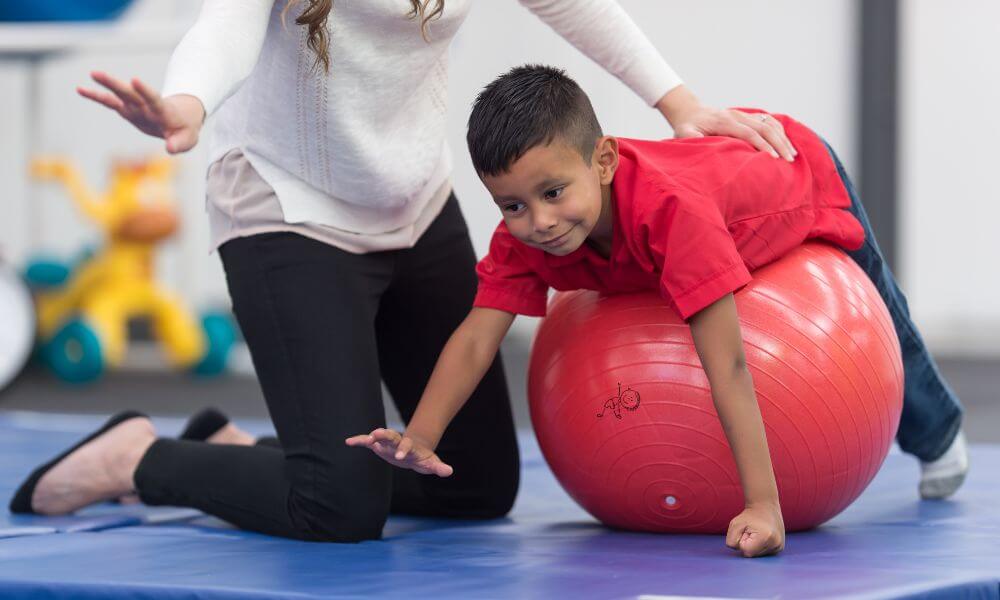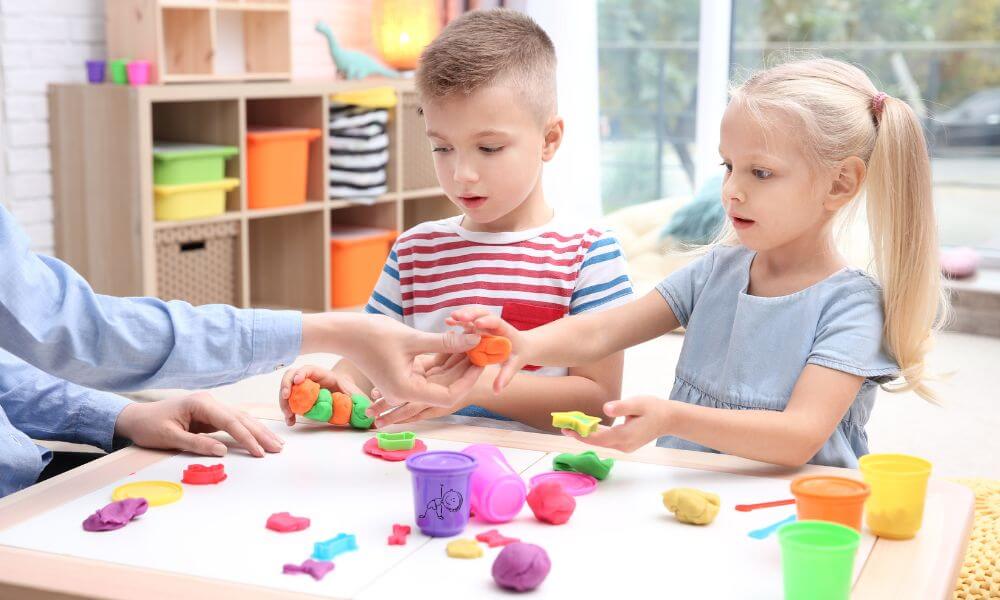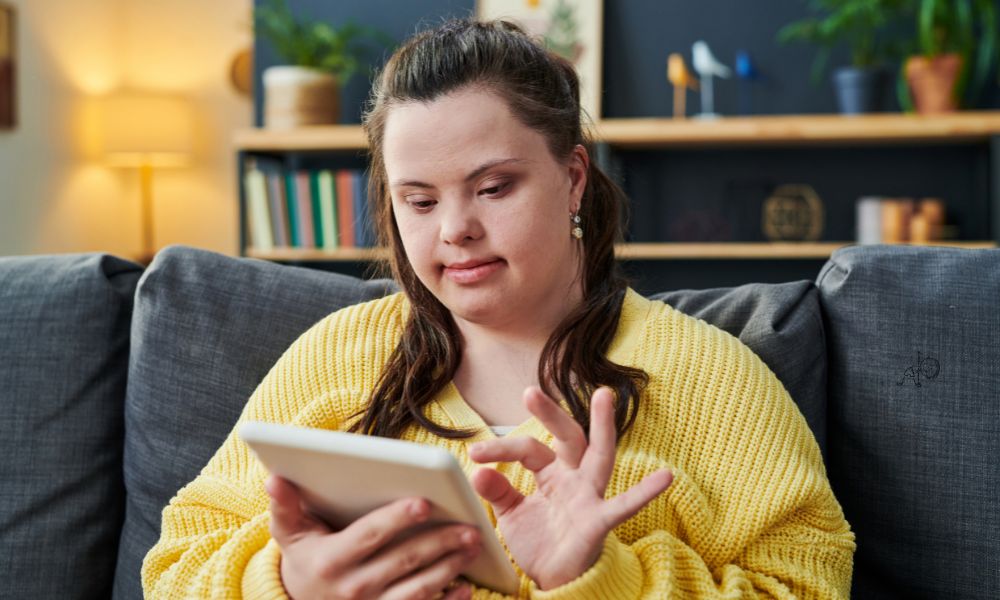Intellectual disability self-care– Welcome to our blog, where we are embarking on a journey into the world of self-care in the context of intellectual disability. Let’s understand in depth what intellectual disability is and why self-care is so important.
Intellectual disability is a condition characterized by limitations in intellectual function and a lack of intelligent behavior.
It is a condition where a person has cognitive impairment, difficulty in learning, and hesitation in carrying out day-to-day living. These challenges are different for every person, which makes each person’s experience special.
Now, let us highlight the importance of self-care for individuals with intellectual disability in life. Self-care isn’t just about pampering yourself; It’s about nurturing physical, emotional, and mental health.
For individuals with dementia, self-care is extremely important because it promotes independence, builds confidence, and provides a sense of power.
By prioritizing self-care, a person can handle stress better, face challenges, and live a happy life. So let’s delve deeper into mindfulness self-care by taking baby steps, where small steps can make a big difference towards a happier and healthier life.
Physical Self-Care

Maintaining Personal Hygiene
Taking care of your body, especially for people with dementia, is an important part. A person should have more knowledge of cleanliness and personal hygiene so that they can remain healthy and safe.
To protect personal hygiene, bathing twice a day is important. Additionally, routine tasks like washing hands, getting a haircut, and brushing teeth should also be taken into consideration. A person should try to keep his clothes neat and clean so that any kind of infection can be avoided.
Apart from this, they should try to eat healthy and nutritious food so that their body remains healthy. It is all the little things that help in maintaining physical health and help a person to live a healthy and fit life. (Intellectual disability self-care)
Incorporating Regular Exercise
Understanding the importance of exercise and doing regular exercise is also very important for people with intellectual disability. Exercising not only increases physical strength and stability but also keeps the mind active.
To incorporate regular exercise, one should start their exercise routine slowly and gradually increase it. Exercise can include yoga, walking, swimming, or simple stretching exercises, which keep the body balanced and improve health.
One should try to make exercise a part of their daily life. Furthermore, one should take care that they understand their body’s limitations when performing exercises so that they do not suffer any kind of injury or injury.
By exercising, a person keeps his body active and extremely fit, which takes a step towards his health.
Navigating Nutrition and Dietary Needs
It is very important to understand the nutritional needs and unique needs of individuals with intellectual disability. Your food items should contain the right amount of nutrients so that your body remains healthy and active.
The basic mantra of a nutritious diet is that you should get the right balance of all the nutrients. It should include fruits, vegetables, pulses, grains, protein-rich food and water.
A person should stay away from processed food and junk food, as these often do not fulfill the nutritional deficiencies and harm the body.
Additionally, one should also take care of one’s special dietary needs. Some people need more amounts of certain nutrients, such as vitamins or proteins. Understanding these needs, those elements should be included in their diet so that their body remains completely healthy.
With a nutritious diet and the right food, a person nourishes his body and with time moves towards a good healthy life. (Intellectual disability self-care)
Emotional Well-being

Cultivating Emotional Awareness
Developing emotional awareness, that is, understanding one’s feelings and emotions, is important even for non-intelligent individuals. Understanding emotions allows a person to understand his state of mind and express his thoughts.
To develop emotional awareness, one must take time to understand and express one’s emotions. They can understand and control their thoughts and reactions by carefully observing them.
Furthermore, one should also take inspiration from one’s peers to express one’s emotional state. Also, they should seek help from a special person, such as a counselor or therapist, to express their feelings.
Developing emotional awareness allows a person to understand and control their emotions, which improves their emotional state and leads to a more balanced and happy life.
Effective Stress Management Techniques
Techniques to deal with the effects of stress are extremely important for non-intelligent people. Stress is a part of our lives, but it is also important to manage it properly so that individuals keep their emotional and physical health safe.
By engaging in effective stress management techniques, a person can reduce his stress. Some of the key techniques include yoga and pranayam, meditation and mindfulness, deep breathing, and by experiencing peace of mind. Implementing these techniques regularly helps reduce physical and mental stress.
Apart from this, one should also use one’s personal and social support in stress management. Talking to someone special, maintaining a friendship, or attending a beloved event helps reduce stress.
Managing stress empowers a person in most areas of their life, and thus leads them to a more pleasant and joyful life.
Building Resilience through Positive Coping Strategies
Building resistance through positive coping mechanisms, i.e. finding solutions in a positive way, is extremely important for non-intelligent individuals. Resilience helps a person to face difficulties and enables them to find solutions to problems.
By using positive solution systems, a person keeps his state of mind balanced and faces difficulties.
Some key positive coping mechanisms include finding daily motivation, understanding one’s situation, talking to supportive people in the search for solutions, and encouraging the person’s commitment to finding solutions to problems.
Additionally, a person should also boost their self-confidence and self-esteem, so that they can be more capable of facing difficulties.
It is a means of maintaining resistance which helps a person find solutions to every difficulty and leads them to a stronger and positive life. (Intellectual disability self-care)
Social Engagement

Fostering Meaningful Relationships
Cultivating meaningful relationships and maintaining relationships with individuals in society is an important part for intelligent individuals. These relationships provide social, mental, and emotional support to the individual.
To build important relationships, one must be active in society and seek opportunities to meet new people. They should also take special care in expressing their thoughts and feelings to others.
Apart from this, one should also take inspiration from keeping one’s social and family relationships prosperous and strong.
Important relationships provide social support to the individual and provide them with an important position in society. These relationships also increase a person’s self-confidence and self-esteem, which makes their life happy and joyful.
Developing Social Skills
Developing social skills is an important step for individuals with intellectual disability to flourish and play a supporting role in their social lives. The development of these skills makes the person properly adapted to the social environment.
To develop social skills, one must take special care in dealing with others. This includes communication, understanding, and cooperation. A person should learn to express himself properly in society so that he can be able to face social and family situations.
Additionally, the individual should seek opportunities to be involved in society, such as attending events, contributing to social service, and participating in helpful activities. Development of all these skills makes a person an intelligent and active citizen in the society, making his life rich and joyful.(Intellectual disability self-care)
Participating in Community Activities
Participating in community activities, that is, being involved in community activities, is a valuable source of social support and participation in society for individuals with intellectual disability. It provides them an opportunity to stay socially connected and contribute.
By participating in community activities a person feels like an ideal social citizen. This includes serving at community fairs, events, or support centers. It provides an active place in the society to the individual while respecting his social responsibilities.
Furthermore, participating in community activities allows a person to meet new friends and spend time with them, which helps in their social and mental development. Thus, participation in community activities gives an individual the opportunity to lead a socially and emotionally rich life.
Cognitive Stimulation

Engaging in Mental Exercises and Games
Participating in mental exercises and games is an important way for individuals with intellectual disability to keep their minds active and sharp. It helps in developing their cognitive skills and provides them an opportunity to increase their brain power.
By participating in mental exercises and sports, a person’s mind remains active and alert. This includes games like puzzle solving, crosswords, Sudoku, and board games. These games help a person to think and find solutions to problems, which enhances their mental abilities.
Apart from this, there are also digital apps and online games that keep a person mentally active. These include memory games, brain teasers, and cognitive training exercises. By using these apps and games, individuals can control their brain abilities and develop them faster.
By exercising the mind and participating in sports, a person gets entertainment and also keeps his mind active and sharp. Thus, it is an important way to lead their brain development and health. (Intellectual disability self-care)
Pursuing Lifelong Learning Opportunities
Pursuing lifelong learning opportunities is a special foundation for individuals with intellectual disability to enhance their mental development and understanding. It provides them with the opportunity to progress in new knowledge and areas.
In pursuit of lifelong learning opportunities, one gets the opportunity of new learning and training. This includes courses, workshops, or online classes. It introduces the person to new ideas and talents and keeps their mind sharp.
Additionally, one also gets the opportunity to explore new hobbies and interests, such as painting, gardening, music, or photography. It exposes them to new experiences and provides an opportunity for freshness and progress to their minds.
The pursuit of lifelong learning opportunities increases a person’s knowledge and understanding. Thus, it is an important way to lead their brain development and health.
Enhancing Cognitive Skills through Creative Activities
Enhancing mental abilities through creative activities is a fun and important way for intellectually challenged individuals to enhance their mental skills. It provides them an opportunity to develop new ideas and keep their minds active.
Participating in creative activities keeps a person’s mind active and alert. This could include painting, drawing, crafting, or even music or dance. It gives the person an opportunity to express his thoughts and helps in increasing his brain power.
Apart from this, creative writing, storytelling, and problem-solving activities also sharpen a person’s mind. Enjoying these activities develops a person’s mind and opens up new avenues of thought.
Increasing mental abilities through creative activities gives pleasure to a person and also keeps his mind active and sharp. Thus, it is an important way to lead their brain development and health.(Intellectual disability self-care)
Daily Living Skills
Mastering Activities of Daily Living (ADLs)
Mastering activities of daily living (ADLs) is a valuable step for individuals with intellectual disability to increase their independence and competency. These functionalities help the individual to perform the tasks of their everyday life independently.
ADLs include managing simple routine tasks, such as preparing meals, doing laundry, cleaning, and completing occupational or household tasks on time. Understanding these tasks and performing them in a natural way provides freedom and confidence to the person.
Additionally, one must also take advantage of related assistive devices and enrichments to achieve excellence in ADLs. For example, if someone has difficulty performing certain tasks, they may be able to use equipment and assistive features to help make their life easier.
By managing ADLs a person becomes more independent and adaptive in their life, which makes their social and personal life stable.
Learning Time Management and Organization
Learning time management and organization is an important step for intelligent individuals in making their lives organized and prosperous. This art helps them to understand and use their time systematically.
To learn time management and organization, one should painstakingly understand his/her day to day tasks and try to execute them in a systematic manner.
Moreover, they should acquire the art of carrying out their tasks in limited time so that they can understand the importance of time.
Additionally, one should use symbolic tools to organize one’s time, such as calendars, planners, and reminder apps. These tools help the person to complete their tasks on time and utilize their time properly.
Learning time management and organization helps a person to achieve success in every area of their life. Thus, it is an important way to organize and optimize their social and personal life.(Intellectual disability self-care)
Developing Money Management Skills
Developing money management skills is an important step for intelligent individuals in increasing their financial independence and capability. This art helps them to understand their money and make productive use of it.
To develop money management abilities, one must understand and limit one’s spending. Moreover, they should be adept at making a fixed budget for their savings and investments so that they can achieve their financial goals in a progressive manner.
Additionally, one should use modern tools to track one’s expenses, such as mobile apps and online banking. These tools help a person to understand and control his expenditure on time.
By developing money management abilities, a person learns to improve his financial life. Thus, it is an important way to improve their economic condition and enhance stability and prosperity in their social and personal lives.
Healthcare Management

Advocating for Healthcare Needs
Advocating for healthcare needs is an important step for persons with disabilities to protect their health and social well-being. This helps them to avail the right features at the right time.
Individuals must understand and speak up for their rights and opportunities in advocating for health needs. This includes knowledge of health related information, demand for necessary facilities, and arrangement of health services in collaboration with the society.
Apart from this, the person should also be helpful towards other members of his family and society in understanding and making them understand the importance of health. They can make an important place in their society by providing awareness and support for health.
Advocacy for health needs makes the individual an active citizen and gives them the opportunity to raise their voice for the welfare of their health and society. Thus, it is an important step towards enhancing stability and prosperity in their social and personal lives.(Intellectual disability self-care)
Understanding Medication Management
Understanding medication management, that is, understanding medication management, is an important step for individuals with mental disorders to preserve their health and lead a prosperous life. This helps them to use their medicines correctly.
To understand medication management, one must take care of taking their medicines at the right time and in the right quantity. Apart from this, it is also important for them to have knowledge about the side effects of their medicines and their correct use.
Apart from this, one should keep in touch with their doctor regularly and talk to them intelligently about their medicines. If there are any concerns or questions, a person should always keep in touch with their doctor or pharmacist.
Understanding medication management helps a person gain knowledge about the correct use of their medications, thereby protecting their health. Thus, this is an important step towards securing and enriching their health.
Accessing Healthcare Resources and Services
Access to health services and resources is an important step for persons with disabilities to ensure their health and social well-being. This helps them to avail the right features at the right time.
To avail health services and resources, one must be aware of health services and understand the right path to avail them. This includes knowledge of the availability of hospitals, clinics, diagnostic centers, and other health institutions.
In addition, the individual must also have the ability to obtain economic and professional support to access health services. If the person lacks any essential facility, they should also avail government and mandatory services.
Taking advantage of health services and resources helps a person to access health facilities properly and receive timely treatment, thereby protecting their health. Thus, this is an important step towards securing and enriching their health.
Safety and Risk Management
Identifying and Mitigating Safety Risks
Identifying and mitigating safety hazards, that is, identifying and addressing safety risks, is an important step for individuals with disabilities to protect their health and safety. It helps them identify threats and find solutions.
Recognizing threats gives a person the opportunity to understand and protect against them. This may include detecting hazards in the home, such as hot objects, electricity use, or the risk of arrest. One should understand how to keep such things safe.
Apart from this, it is also important for the person to have the knowledge to use the safety features properly. Such as, having a fire extinguisher at home, knowing emergency contact numbers, and knowing how to walk safely.
Recognizing and reducing safety hazards helps keep a person safe in their home and society. Thus, this is an important step to safeguard their health and safety.(Intellectual disability self-care)
Implementing Emergency Preparedness Plans
Implementing emergency preparedness plans is an important step for vulnerable individuals in increasing their safety and commitment. It teaches them to be properly prepared in times of sudden disasters.
Implementing disaster preparedness plans gives a person the understanding to take appropriate action at the time of disasters.
This includes keeping disaster preparedness items stocked at home, practicing safety plans with family, and maintaining a list of neighborhood emergency contact numbers.
Apart from this, it is also important for the individual to take assistance from social and government organizations for disaster preparedness. Such as, staying connected with the local authorities, and following the guidelines and instructions given by them.
Implementing disaster preparedness plans provides an individual with the ability to be properly prepared when disasters strike. Thus, this is an important step towards enhancing their safety and dedication.
Recognizing Signs of Abuse and Seeking Help
Recognizing the signs of abusive behavior and seeking help is an important step for abused individuals in securing their safety and commitment. It helps them to protect their rights and stay safe.
Recognizing the symptoms of delinquent behavior helps a person understand his/her surroundings and cope with any kind of practical and mental suffering. This includes understanding the signs of physical, emotional, and financial abuse.
Additionally, a person should seek help immediately if they have been a victim of any type of delinquent behavior. For this, the person can contact his family or friends, and if necessary, can also seek help from local authorities or social service organizations.
Recognizing the signs of delinquent behavior and seeking help is important for the individual’s safety and commitment. Thus, this is an important step to protect their rights and keep themselves safe.(Intellectual disability self-care)
Read- Understanding: How Self Care Improves Mental Health
Assistive Technology and Adaptive Aids

Exploring Assistive Devices for Independence
Inventing aids to freedom, that is, inventing aids to freedom, is an important step for non-intelligent people. It helps them to increase their self-reliance and independence.
Inventing assistive devices for independence gives a person the opportunity to become self-reliant.
These include mobility aids, such as wheelchairs or walkers, and sensory aids, such as hearing aids or magnifiers. These devices help the person to carry out their routine tasks easily.
Utilizing Adaptive Tools for Daily Tasks
Using devices adapted for everyday tasks, that is, using devices adapted to daily tasks, is an important step for people with intellectual disability. It helps them organize and simplify their everyday tasks.
Individuals can easily carry out their tasks by using equipment designed for everyday tasks. These include specially designed kitchen tools, grip aids, and memory aids. These equipment help the person in completing his daily tasks.
Accessing Technology for Communication and Accessibility
Using technology for communication and access, that is, using technology for communication and access, is an important solution for individuals with intellectual disability. It helps them form relationships and join society.
The use of technology helps individuals build relationships and communicate. This includes speech-to-text software, braille displays, and communication apps. These tools help a person to participate in social and personal life.
Advocacy and Self-empowerment
Advocating for Rights and Inclusion
Advocating for rights and inclusion, that is, speaking up for rights and inclusion, is an important step for individuals with disabilities. It helps them to join the society and protect their rights.
While advocating for rights and inclusion, one must be aware of one’s rights and raise one’s voice to protect them. This includes inclusion in society, receiving support, and working to secure their rights.(Intellectual disability self-care)
Building Self-esteem and Confidence
Building self-esteem and self-confidence, i.e. increasing self-worth and self-confidence, is an important step for individuals with dementia. It helps them to have confidence in themselves and achieve success in society.
To build self-esteem and self-confidence, one must understand one’s contributions and abilities and practice being proud of them. This includes appreciating your skills and contributions and taking steps to achieve your dreams.
Taking Charge of One’s Life and Choices
Taking control of one’s life and challenges, that is, taking control of one’s life and choices, is an important step for individuals with dementia. It helps them to be in control of their life and fulfill their dreams.
While managing one’s life and challenges, one must clarify one’s goals and objectives and take steps towards them. This includes understanding your values and values in life, and applying integrity to your challenges.
Rights and freedoms, self-respect and self-confidence, and taking management of one’s life and challenges are all steps that lead individuals with dementia to stability and prosperity in social and personal life.
Support Systems and Resources

Connecting with Support Groups and Networks
Connecting with support groups and networks, that is, connecting with support groups and networks, is an important support for individuals with dementia. It helps them to find support in the society and find solutions to their problems.
Joining support groups and networks provides a person with support in society who can understand their problems and provide them with the right guidance. This includes friends, family members, and other people who support them through their problems.(Intellectual disability self-care)
Accessing Community Resources and Services
The right to manage community resources and services, that is, the right to use community resources and services, is an essential step for persons with dementia. This helps them access social facilities and support.
Access to community resources and services provides the individual with the support they need to pursue their social and economic interests. It includes government services, NGOs, and social service institutions that help in providing social facilities and support.
Seeking Professional Guidance and Assistance
Seeking professional guidance and support, that is, seeking professional guidance and support, is an important step for individuals with dementia. It helps them in achieving their professional and personal objectives.
Seeking professional guidance and support provides the individual with the guidance and support needed to achieve their objectives. This includes counselors, therapists, and career advisors who help the individual find solutions to their problems and reach their goals.
Joining support groups and networks, taking ownership of managing community resources and services, and seeking professional guidance and support are all steps that can help individuals with dementia find solutions to their problems and achieve their goals.
Family and Caregiver Support

Involving Family in the Care Plan
Involving family in the care plan is an important step for individuals with dementia. This helps them to find support in the society and to make their physical resource plans successful.
Involving family members in physical resource planning helps the individual work with them to understand their needs and find the right solution for them. This increases their support and inclusion in society.
Providing Support for Caregivers
Providing support for caregivers is an important step for people with dementia. It helps them understand and support their responsibilities.
Providing support to body resource workers helps them respect their responsibilities and understand their time and commitment. This also secures their future. (Intellectual disability self-care)
Establishing Effective Communication Channels
Establishing effective communication channels is an important step for individuals with intellectual disability. It helps them to build good relations with their family members.
By establishing effective relationships, the individual gets the opportunity to talk openly with their family members and express their needs and desires. This increases their support and inclusion in society.
You can read On How Does Self Care Reduce Stress And Calm Us
Financial Planning and Assistance
Understanding Financial Benefits and Aid
Understanding financial benefits and aid is an important step for individuals with intellectual disability. It helps them to improve their economic condition and integrate properly into the society.
Understanding economic benefits and assistance helps a person gain knowledge about their rights and benefits. This includes information about government schemes, social security benefits, and other economic facilities. This helps in improving their financial condition.
Planning for Long-term Financial Security
Planning for long-term financial security is an important step for individuals with intellectual disability. This helps them to anticipate future economic conditions and be optimally prepared.
In planning for long-term financial security, one must clarify one’s financial goals and objectives and select suitable investment and savings options for them. This secures their future.
Accessing Legal Assistance and Resources
Accessing legal assistance and resources is an important step for people with intellectual disability. It helps them to protect their legal rights and find solutions to their problems.
Getting access to legal aid and resources helps a person understand their legal rights and contact people who can explain them. This helps them find solutions to their problems and saves their time and commitment.
Employment and Vocational Training
Exploring Employment Opportunities
Exploring employment opportunities is an important step for individuals with intellectual disability. It helps them to find employment opportunities as per their capabilities and range of choice.
While exploring employment opportunities, one should understand the field of employment as per one’s capabilities and the range of his/her preferences. This includes using job portals, networking, and getting information about government schemes.(Intellectual disability self-care)
Accessing Vocational Training Programs
Accessing vocational training programs is an important step for individuals with intellectual disability. It helps them develop their capabilities and prepare them for employment.
Taking advantage of vocational training programs, one has the opportunity to choose the right plan to develop one’s abilities. This includes taking admission in vocational institutes, taking advantage of on-the-job training programs, and contacting vocational counselors.
Navigating Workplace Accommodations and Support
Navigating workplace accommodations and support is an important step for individuals with dementia. This helps them to avail the right facilities at the workplace and utilize their capabilities to the fullest.
Understanding workplace design and support allows individuals to identify the right facilities for their needs and the opportunity to take advantage of them. This includes reasonable accommodations, flexible work schedules, and disability-friendly workplace policies.
Transportation Accessibility
Finding Accessible Transportation Options
Finding accessible transportation options is an important step for individuals with intellectual disability. It helps them to reach from their place to another in a safe and comfortable manner.
While looking for accessible transportation options, one must find the right options to get from one place to another. This includes accessible taxis, wheelchair-accessible vehicles, and accessible routes connected to transportation agencies.
Understanding Public Transit Services
Understanding public transit services is an important step for individuals with intellectual disability. It helps them to reach from one place to another using generally available public transport services.
Understanding public transport services, one should have knowledge of the public transport services available in their city. This includes getting information about public transport services such as bus, train, and metro, their timings and ratings, and routes. (Intellectual disability self-care)
Exploring Mobility Assistance Programs
Exploring mobility assistance programs is an important step for individuals with disabilities. This helps them meet their speed and transportation needs.
Disclosing Speed Assistance Programs One should obtain information about speed assistance programs available in their city. This includes accessible transport passes, online facilities for booking transport, and door-to-door transport services.
Recreation and Leisure Activities
Discovering Enjoyable Hobbies and Interests
Discovering enjoyable hobbies and interests is an important step for individuals with intellectual disability. It helps them to stay busy in entertainment and happiness.
While finding enjoyable hobbies and interests, one should explore the area of one’s interests and passions. This includes painting, music, gardening, or other arts and hobbies. This boosts their morale and they also have a good time entertaining themselves.
Accessing Recreation Programs and Facilities
Accessing recreation programs and facilities is an important step for individuals with intellectual disability. It helps them to participate in different entertainment programs and avail entertainment facilities.
While taking advantage of entertainment programs and facilities, one should get information about the entertainment programs and facilities available in one’s city. This includes parks, community centers, libraries, and sports facilities. This also increases their entertainment time and social interaction.
Promoting Socialization through Leisure Activities
Promoting socialization through leisure activities is an important step for individuals with intellectual disability. It helps them to join the society and make new friends.
Socializing through Recreational Activities Increasingly, one should be involved in different recreational activities such as group outings, hobby clubs, or even community events. This also improves their morale and social skills. (Intellectual disability self-care)
Advocacy Initiatives and Legislation
Supporting Advocacy Campaigns and Movements
Supporting propaganda campaigns and movements, i.e. supporting propaganda campaigns and movements, is an important step for brainless individuals. It helps them fight for their rights and social inclusion.
Supporting campaigns and movements helps the individual to protect their rights and raise their voice by collaborating with them. This includes promoting awareness campaigns on social media, signing petitions, and joining campaign groups.
Understanding Legal Protections and Rights
Understanding legal protection and rights, that is, understanding legal protection and rights, is an essential step for non-intelligent individuals. It helps them understand and protect their legal rights.
To Understand legal protection and rights, one must have knowledge about one’s legal rights and take steps to protect one’s rights by contacting individuals who understand them.
This includes obtaining information about disability discrimination laws, accessibility regulations, and legal aid services.
Contributing to Policy Development for Disability Rights
Contributing to policy development for disability rights, i.e. contributing to policy development for disability rights, is an important step for persons with disabilities. It helps them to develop right policies for inclusion and equality in the society.
While contributing to development policies, individuals should learn about their rights and appropriate policies for their social inclusion and they should contribute their ideas and experiences to those policies.
This includes government consultation, collaboration with campaigning organizations, and proposing policy recommendations.
Supporting campaigns and movements, understanding legal protections and rights, and contributing to development policies for disability rights, all these steps help persons with disability fight for their rights and social inclusion and improve their social status. (Intellectual disability self-care)
Self-Assessment
Take Charge of Your Well-being with Self-Assessment Tools.
Your one-stop guide to self-care for individuals with intellectual disabilities. Today, we’re diving into a powerful tool: self-assessment checklists. These handy tools can help you identify areas where you’re rocking your self-care routine and areas where you might want to focus a little more attention.
Why Self-Assessment?
Self-assessment is like checking the map on a road trip. You get to see where you are and decide which direction to take next. With self-care, it’s about understanding your current practices and figuring out what works best for YOU.
Ready to Get Started?
Let’s explore some self-assessment tools to help you take charge of your self-care journey in different areas:
1. Physical Health Check:
- Brush time- Do you brush your teeth twice a day? (Check if yes)
- Shower Power- Do you shower or bathe regularly? (Check if yes)
- Fueling Up- Do you eat at least three meals a day? (Check if yes)
- Rainbow on Your Plate- Do you include fruits and vegetables in your diet most days? (Check if yes)
- Sweet Dreams- Do you get at least 7 hours of sleep most nights? (Check if yes)
- Move it, Move it- Do you exercise for at least 30 minutes most days of the week (walking, swimming, yoga, etc.)? (Check if yes)
Scoring Your Physical Health:
- 5-6 Checks: You’re a physical self-care champion. Keep up the fantastic work.
- 3-4 Checks: There might be a few tweaks you can make. Talk to a friend, family member, or caregiver about ideas.
- 0-2 Checks: Let’s explore some ways to boost your physical well-being. Reach out for support if you need it.
Remember: This is just a starting point. Everyone’s self-care journey is unique.
Emotional Wellbeing Check-In: How Are You Feeling?
Intellectual disability self-care-Taking care of your emotions is just as important as taking care of your body. This emotional self-assessment will help you identify how you’re feeling and explore ways to boost your emotional well-being.
Emoji Meter:
- Choose the emoji that best represents your overall mood today:
- Very Happy
- Happy
- Meh
- Sad
- Worried
Feeling Checkboxes: (Check all that apply)
- I feel stressed most of the time.
- I have trouble expressing my emotions.
- I often feel anxious or worried.
- I’m not sleeping well.
- I don’t feel like doing things I used to enjoy.
Remember: There’s no right or wrong answer here. These are just starting points to help you identify how you’re feeling.
Taking Care of Your Emotions:
If you checked some of the boxes, don’t worry. There are many things you can do to feel better emotionally. Here are a few ideas:
- Talk to someone you trust: Sharing how you feel with a friend, family member, therapist, or counselor can be a big help.
- Relaxation Techniques: Deep breathing exercises, meditation, or listening to calming music can help reduce stress and anxiety.
- Do Things You Enjoy: Make time for activities that bring you joy, whether it’s spending time in nature, listening to music, or hanging out with loved ones.
- Healthy Habits: Getting enough sleep, eating a balanced diet, and exercising regularly can all improve your emotional well-being.
Looking for More Support?
If you’re feeling overwhelmed, there are resources available to help. Reach out to a trusted adult, a local mental health helpline, or a support group for individuals with intellectual disabilities.
Remember: You are strong, and you are not alone.
Social Connection Check-In: Expanding Your Circle.
Social connection is a vital part of well-being. This self-assessment will help you explore your current social connections and identify ways to strengthen or expand your social circle. (Intellectual disability self-care)
Social Circle Map (Optional):
Grab a piece of paper and draw a circle in the center. Around the circle, write down the names (or initials) of the people you spend time with regularly (family, friends, neighbors, etc.). The closer the name is to the center, the more frequent your interaction.
Social Connection Checkboxes: (Check all that apply)
- I feel lonely most of the time.
- I don’t have many people to talk to about my problems.
- I find it difficult to meet new people.
- I’m not involved in any clubs or activities.
- I would like to spend more time with friends and family.
Remember: This is just a self-assessment to see where you stand
Building Strong Connections:
There are many ways to build and strengthen your social connections:
- Connect with Existing Friends and Family: Reach out to people you already know and plan activities together.
- Join a Club or Group: Look for clubs or groups that focus on your interests (sports, hobbies, volunteering). Many communities offer programs specifically designed for individuals with intellectual disabilities.
- Strike Up Conversations: Smile and say hello to people you see regularly.
- Volunteer: Volunteering is a great way to meet new people and give back to your community.
- Embrace Technology: Stay connected with friends and family who live far away through video calls or social media (with adult supervision if needed).
Feeling Stuck?
Don’t hesitate to ask a trusted adult, therapist, or support group coordinator for help with connecting with others.
Remember: Strong social connections can make a big difference in your overall well-being. Take charge and build your social circle.
Exploring Facts & Stats on Intellectual disability self-care
- Prevalence of Intellectual Disabilities: According to the World Health Organization (WHO), approximately 1-3% of the global population has an intellectual disability, making it a significant public health concern.
- Challenges in Accessing Healthcare: Individuals with intellectual disabilities often face barriers in accessing appropriate healthcare services, leading to disparities in health outcomes. According to a study published in the Journal of Intellectual Disability Research, there is a higher prevalence of unmet healthcare needs among this population.
- Impact of Self-Care on Well-being: Research suggests that practicing self-care activities such as maintaining personal hygiene, engaging in regular exercise, and managing emotional well-being can significantly improve the overall well-being and quality of life for individuals with intellectual disabilities.
- Importance of Social Support: Social support networks play a crucial role in facilitating self-care practices among individuals with intellectual disabilities. Studies have shown that strong social support systems contribute to better health outcomes and overall life satisfaction for this population. (International Journal of Disability, Development and Education)
- Barriers to Self-Care: Various factors such as communication challenges, limited access to resources, and stigma surrounding intellectual disabilities can act as barriers to effective self-care practices. Recognizing and addressing these barriers are essential for promoting self-care among individuals with intellectual disabilities.
- An estimated 7-8 million people in the United States have intellectual disabilities (https://www.nichd.nih.gov/health/topics/idds).
- Self-care challenges are common among individuals with intellectual disabilities due to factors like communication difficulties, limited mobility, and dependence on others (https://thearc.org/).
Resources for Self-Care:
The Arc National Organization: Provides information and resources on self-care for individuals with intellectual disabilities and their families (https://thearc.org/).
The American Association on Intellectual and Developmental Disabilities (AAIDD): Offers resources and support for individuals with intellectual disabilities, including self-care strategies (https://www.aaidd.org/home).
National Self Care Project: Provides general self-care resources and tools that can be adapted for individuals with intellectual disabilities (https://www.amazon.com/Weekly-Self-Care-Project-Challenge-Journal/dp/0310460166).
Additional Resources:
Self-Advocacy Organizations: Many local and national self-advocacy organizations run workshops and programs on self-care skills for individuals with intellectual disabilities.
Mental Health Professionals: Therapists and counselors can provide personalized guidance on self-care strategies for individuals with intellectual disabilities and any accompanying mental health challenges.
Remember:
Self-care is an ongoing journey, not a destination. It’s about identifying your needs and developing strategies that work for YOU. By incorporating the resources above and exploring the self-assessment tools in previous sections of Our blog, you’ll be well on your way to becoming a self-care champion.
Conclusion
Congratulations! You’ve explored self-assessment tools, discovered interesting facts about self-care, and learned about valuable resources at your fingertips. Remember, self-care is a personal journey, not a race.
By utilizing the self-assessment tools in this blog, you can identify areas where you’re excelling and areas where you might want to focus some extra attention. This knowledge empowers you to create a personalized self-care routine that works best for YOU.
Taking charge of your well-being can boost your confidence, improve your daily life, and help you thrive. Keep exploring, keep learning, and most importantly, keep taking care of yourself.
I hope you have liked the information we have shared in our article, to know more about this you can read our other article too. (Intellectual disability self-care)
Frequently Asked Questions about Intellectual Disability Self-Care
1. What is intellectual disability self-care?
Intellectual disability self-care refers to the practices and activities individuals with intellectual disabilities engage in to maintain their physical, emotional, and mental well-being. It includes various tasks such as personal hygiene, managing emotions, making healthy lifestyle choices, and accessing appropriate support services.
2. How can individuals with intellectual disabilities improve their self-care skills?
Improving self-care skills for individuals with intellectual disabilities involves breaking down tasks into manageable steps, providing clear instructions, using visual aids or schedules, and offering positive reinforcement. Additionally, teaching adaptive techniques and promoting independence in decision-making can empower individuals to enhance their self-care abilities gradually.
3. What are some common challenges faced by individuals with intellectual disabilities in self-care?
Individuals with intellectual disabilities may encounter challenges such as difficulty in understanding instructions, sensory sensitivities, executive functioning deficits, and communication barriers. These challenges can impact their ability to perform self-care tasks independently and may require personalized strategies and support from caregivers or professionals.
4. How can caregivers support individuals with intellectual disabilities in self-care?
Caregivers can support individuals with intellectual disabilities in self-care by providing structured routines, offering assistance based on individual needs and preferences, promoting autonomy through skill-building activities, and creating a supportive environment that fosters confidence and independence. Collaboration with healthcare professionals and utilizing community resources can also enhance the quality of care provided.
5. What resources are available for individuals with intellectual disabilities to improve their self-care?
There are various resources available to help individuals with intellectual disabilities improve their self-care skills, including educational materials, online courses, support groups, and community-based programs. Additionally, accessing services such as occupational therapy, speech therapy, and behavioral interventions can address specific challenges and facilitate the development of essential self-care abilities.
6. What if I find self-care tasks difficult?
Don’t worry! Many self-care tasks can be broken down into smaller, more manageable steps. Ask a friend, family member, or caregiver for help creating a routine that works for you. There are also therapists and support groups who can offer guidance.
7. How can I stay motivated with self-care?
Find ways to make self-care fun and rewarding. Listen to your favorite music while exercising, reward yourself for completing tasks, or team up with a friend and make self-care a social activity.
8. Where can I find more information?
The resources listed earlier in this blog are a great starting point. You can also check with your local library, disability advocacy organizations, or mental health professionals for additional resources and support.
9. How can I best support someone with self-care?
Communication is key. Talk to the individual about their goals and preferences. Break down tasks into manageable steps, offer encouragement and positive reinforcement, and celebrate their successes.
10. What if someone needs extra support with self-care?
Don’t hesitate to seek help. There are occupational therapists, speech therapists, and other professionals who can provide personalized strategies and support to help individuals develop self-care skills.
11. Where can I find resources for caregivers?
The Arc National Organization, AAIDD, and other disability advocacy organizations offer resources and support specifically for caregivers of individuals with intellectual disabilities. You can also join support groups to connect with other caregivers and share experiences.